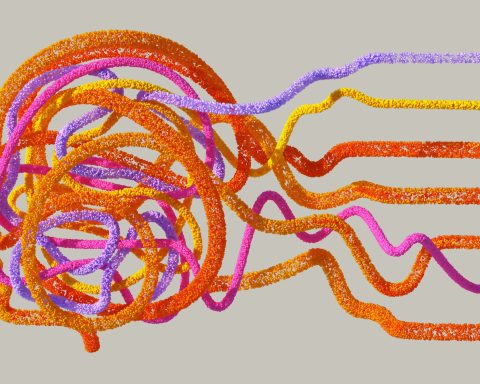Ruth Chambers is a professor and retired GP, currently clinical lead for technology enabled care programme in Staffordshire. Joe Besford is healthcare project manager with interests in innovation, quality improvement and primary care development. Rachel Hatfield manages the national general practice nursing action learning set pilot programme to create digital general practice nurse (GPN) champions. Pritesh Mistry is a PhD physicist by background with a passion for health and care which he combines with his experience in innovation in primary and secondary care to try make good things a reality.
When reading articles on digital innovation in the NHS audiences (and editors!) are finding that they need to update their editorial bingo ticket. Classics like culture change, interoperability or costs remain. But any self-respecting writer must now include something on how the NHS response to the COVID-19 pandemic has provided a greater impetus for digital transformation in primary care. And if you’re looking for a full house there should be some reference to the vital ways that general practice nurses (GPNs) are leading on digital transformation.
So, we want to update our metaphorical bingo ticket, which comes to mind whenever we talk about digital innovation.
Eyes down!
The concept of using certain digital tools in the NHS is as time-worn as ‘unlucky for some’ or ‘never been kissed’. It’s true that many digital tools have been available for use in general practice for years (for example, GP online services). But there is often a disconnect between the availability of a tool and its uptake.
Past efforts to embrace digital tools have shown that training and culture are key enablers.
Next up is the approach to culture change. Culture change is a resource intensive change management process; associated training takes time, costs money, and is only a partial solution that lags behind the rate of change. We think the most impactful method is a learning by doing approach as it demonstrates value and impact that is directly relevant to the learner.
The Staffordshire Technology Enabled Care Services team set out to upskill GPNs across England, with support from NHS England, to promote the use of digital technology to patients and colleagues. This work is relayed in the report Creating digital champions in primary care, co-produced with the Royal College of General Practitioners.2
…this approach can result in a practice transforming from 10% utilisation of digital delivery to over 50% in eight weeks.
The next addition to our bingo ticket is obvious but easy to overlook. One of the many advantages of living in a digital age is existing familiarity with digital tools that are widely used outside of work. The use of social media (for example, Facebook) is one such tool; already popular, designed to be intuitive to use and therefore easier to upskill first-time or infrequent users. Experience suggests better patient engagement, more informed consultations and a shift in opinion amongst clinicians as benefits are realised.3
The digital innovation space can seem removed from the needs of your average primary care team. ‘We’re going to use machine learning to improve dementia diagnosis!’ Great, but my computer takes 10 minutes to turn on! While large scale digital transformation supports the national direction we must also recognise the value of small scale, iterative solutions that add value. These should be practical, pragmatic solutions, implemented through small, realistic and achievable changes which are championed by a member of the team using standard and familiar tools, which lowers the knowledge barrier. There’s obviously a place for both national and grassroots innovation, but the perception of more emphasis on the former can be alienating to frontline practitioners.
A digital champion in a practice can help cultivate a permissive environment.
These are our suggestions for the digital innovation bingo ticket this week. Next week there will undoubtedly be much more to add. Digital delivery is a fast-moving area at the best of times, and the impetus from the NHS response to the COVID-19 pandemic will continue to drive primary care digital transformation as we navigate our way through the digital landscape.
If we remember these lessons as we gradually return to business as usual we can realise the digitally transformed NHS that we need and patients expect. BINGO!
References
- The Topol Review. Preparing the healthcare workforce to deliver the digital future. 2019. https://topol.hee.nhs.uk/wp-content/uploads/HEE-Topol-Review-2019.pdf (accessed 3 July 2020].
- Royal College of General Practitioners. Creating digital champions in primary care. Using an action learning set approach to digitally upskill general practice nurses.2020.
- Beaney P, Hatfield R, Hughes A, et al. Creating digitally ready nurses in general practice. Nurs Manag (Harrow) 2019; . 26(3): 27-35.
Acknowledgements: The authors would like to thank the essential teamwork in delivery of the digital upskilling action learning by Ann Hughes as national digital general practice nurse facilitator lead; and Redmoor Health and Wavemaker CIC for their digital expertise and support for each nurse participant. Funding: Funds from NHSE nurse transformation General Practice Forward View, General Practice Nurse Ten Point Plan have underpinned the England-wide action learning sets to create digital general practice nurse champions across each of the seven regional GPN boards. The views expressed in this paper are those of the authors and not necessarily those of the NHS.
Featured photo by Drew Beamer on Unsplash







This is really promising. Good luck to all the digital champions!